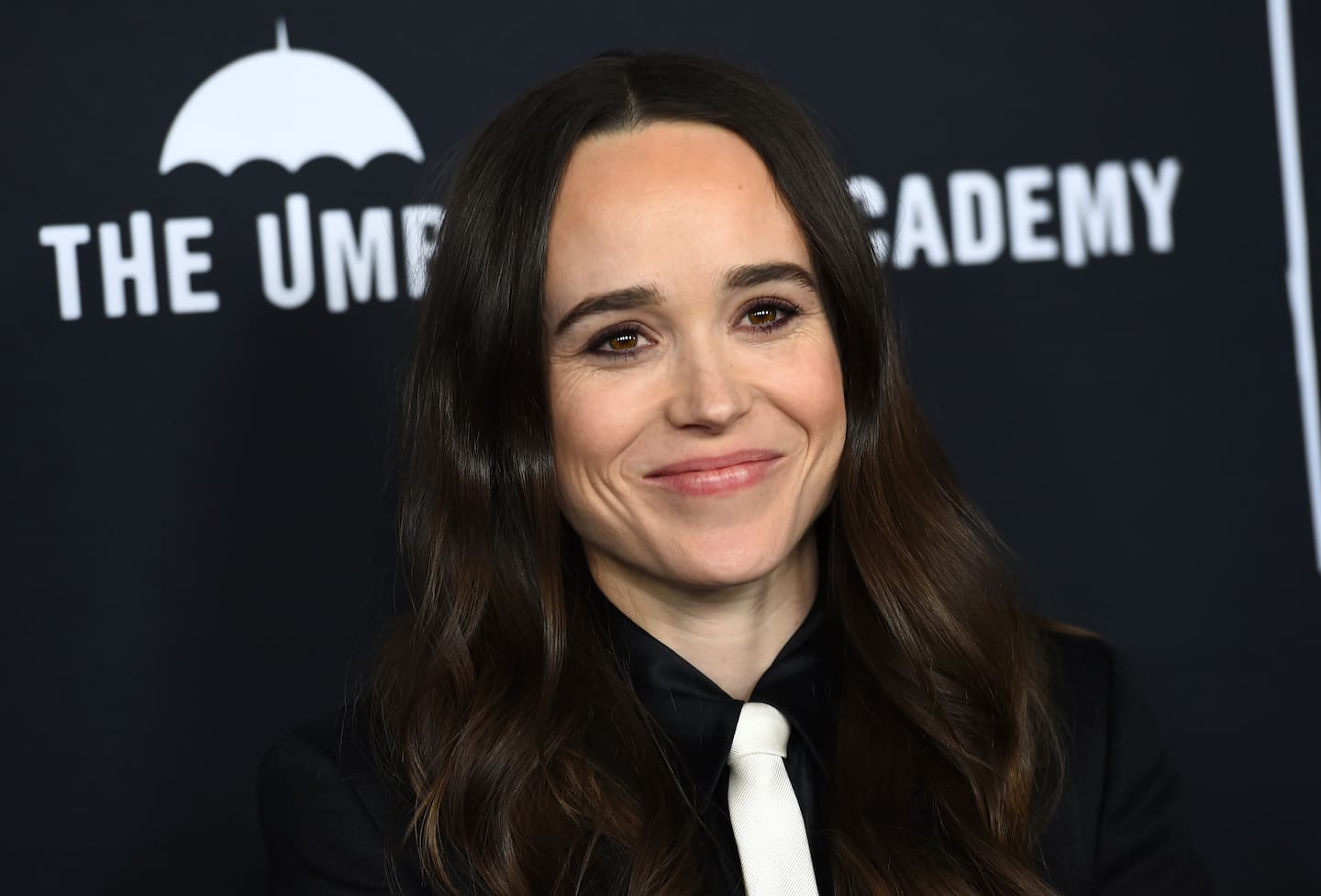Elliot Page has been shaking up gender stereotypes in movies for years

Page should give himself some credit for what he’s done already. Before he came out, Page’s female characters regularly broke Hollywood’s rigid gender mold, providing a more expansive, fluid sense of what it means to be a woman than movies and television normally offer.
Take “Juno,” the 2007 romantic comedy that established Page as a star. The movie, which starred Page as the titular pregnant teenager, is full of dialogue that is only dubiously adolescent. But Juno does look like a kind of teenage girl who is almost never represented on screen. Her hair is tied back rather than immaculately blown-out; she wears loose jeans rather than skinny-cut ones and layers flannels and sweatshirts over T-shirts. Juno sits with her legs apart and chomps on a pipe for effect; she’s a slightly odd kid, a mode in which Page seemed completely natural.
The result is a movie that, in deviating from an airbrushed view of girlhood and a sanitized vision of pregnancy, actually ends up feeling truer than it would have otherwise. Pregnancy and childbirth may be, for the most part, things women experience, but the best way to capture the nature of that shared passage isn’t to coat it in a Barbie-pink gloss, or to pretend that anyone manages to look at all put-together after hours of contractions. Discomfort, sweatiness and voluminous cursing while waiting for an epidural can all be part of being female.
Two of Page’s best supporting roles were also as women who were defined by their talents and ideological commitments, rather than their relationship status or sex appeal.
In Christopher Nolan’s 2010 heist movie “Inception,” Page portrayed Ariadne, a gifted young architect tasked with designing the elaborate dreamscapes that master thief Dom Cobb (Leonardo DiCaprio) uses to infiltrate the minds of his targets. In addition to the role Ariadne plays in the scheme, she and Dom develop a kind of relationship that’s fairly unusual in a Hollywood movie.
Ariadne becomes Dom’s confidante as he struggles with intrusive thoughts of his ex-wife, and ultimately plays a key role in helping him vanquish those distorted memories. But Nolan’s film doesn’t try to make Ariadne’s character conform to some of the gendered expectations that might follow such a set-up. Ariadne and Dom don’t become romantically involved. And while Ariadne’s final confrontation with Dom’s memories requires her to act courageously, her strength isn’t dressed up, per the Hollywood norm, in hyper-femininity.
Page gives audiences a character whose beliefs are her most important characteristic in “The East,” Zal Batmanglij’s 2013 thriller about a corporate-espionage agent who infiltrates a radical environmentalist group. As Izzy, the daughter of an executive whose company pollutes waterways with toxic chemicals, Page uses physical slightness in surprising ways. Izzy may be small, even delicate, but her conviction and her rage are not: The sight of such an unimposing person as a rigid ideological enforcer communicates the depth of the anarchists’ commitment.
And in Netflix’s 2019 “Tales of the City” miniseries, Page played Shawna Hawkins, a professionally aimless, sexually swashbuckling member of a multigenerational chosen family. Shawna is simultaneously boyish and vulnerable, adventuresome and unworldly.
That particular combination of qualities is rare, and not just on-screen. Slate writer Melissa Kaplan identified that juxtaposition as one of the most interesting and appealing qualities in Page’s coming-out letter, in which Page acknowledged that “My joy is real, but it is also fragile,” given the ugly experiences and violence too many transgender people face.
Certainly, Page may have reason to wonder how the movie industry will look at him going forward. While actors and directors such as Laverne Cox and Janet Mock have developed viable careers, they did so after they transitioned: the famously risk-averse movie and TV businesses didn’t have to consider how audiences might react to seeing stars they knew in one context in very different roles.
Page will continue with his most recent role, playing the female character Vanya on “The Umbrella Academy.” As he and Hollywood look forward to what he might do next, the industry should remember that Page has already excelled at pushing back against Hollywood’s notions of what women ought to be. Movie lovers will be lucky to see what he can do next. On-screen masculinity is due for a shake-up.
Read more:






